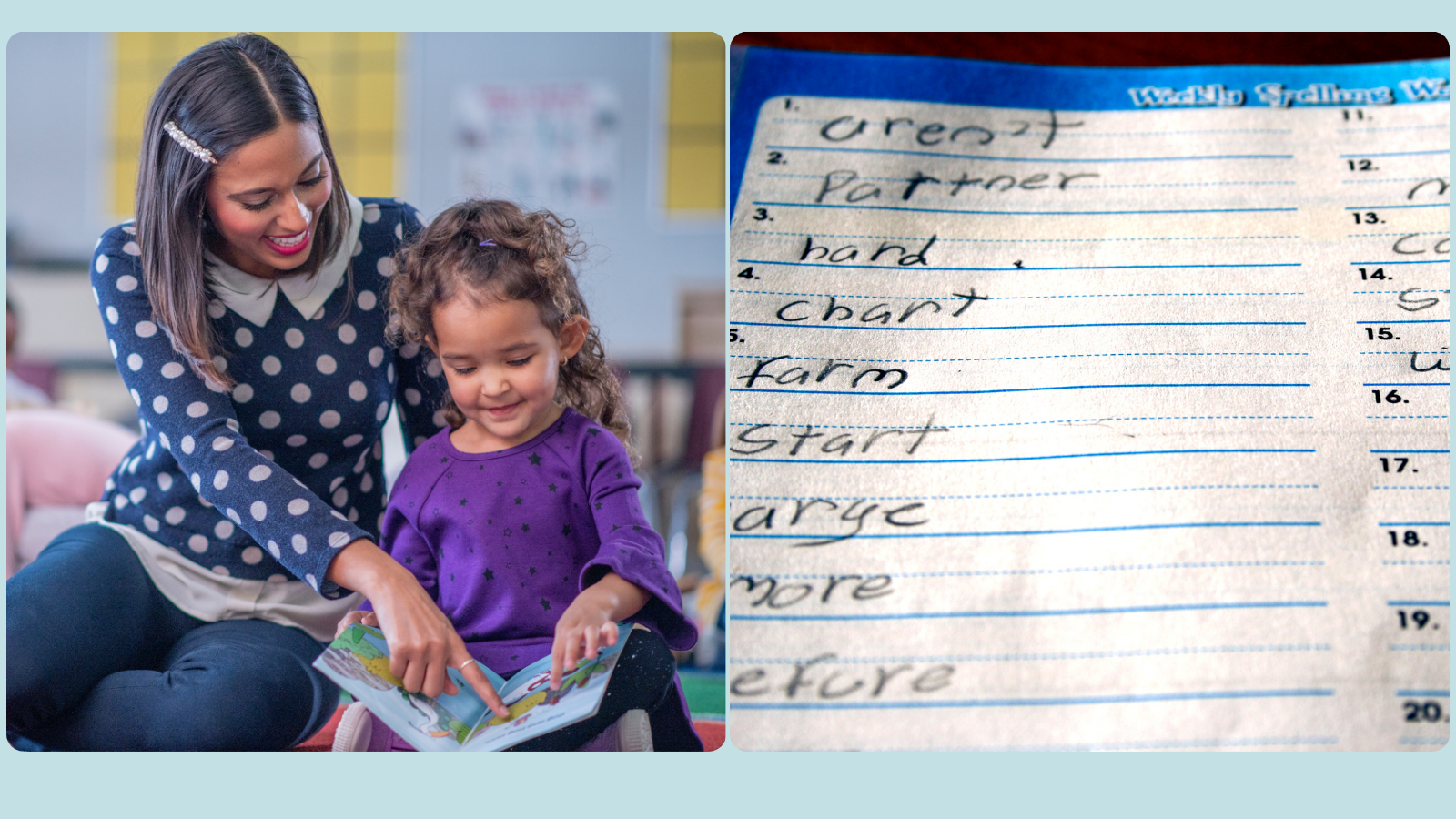“Does Dyslexia Exist?”
For a surefire way to ignite a global debate, simply ask this question in public.
That’s what Professor Julian “Joe” Elliott and Simon Gibbs did when they published a paper with this title in 2008 claiming that “dyslexia” is a scientifically flawed, arbitrary and potentially discriminatory diagnosis. In 2014, Professor Elliott published a book called the “Dyslexia Debate” with Elena L. Grigorenko which expanded on these claims.
Both publications and a related TV show attracted significant attention from reading experts in the UK and around the world, as well as from families with children diagnosed with dyslexia, and dyslexia support groups and charities. They set off a media storm, too. For a small taste of it, check out the this screaming headline from a UK tabloid, including the comments!
Why the controversy?
Learning disorders are emotionally and politically charged topics because they involve real people with real problems as well as significant economic costs – to families and to taxpayers.
A diagnosis of dyslexia can mean the world to children and their families who may have been struggling for years to cope with the effects of reading problems. In some places, a diagnosis can unlock funding, school places and special resources and allowances that can help children improve their reading outcomes and participation. As a parent, I want my children to have every opportunity for success and happiness in life. Why would I expect any other parent or carer to feel differently about their children?
On the other side of the debate are those such as Professor Elliot who argue that the diagnosis is just a ‘medical’ label for an easily detected problem – reading difficulty – and that too much money is invested on unnecessary cognitive processing and other tests – money that could be better spent delivering reading programs to children at risk. They say it’s not fair that some children with reading problems get access to special resources, while others don’t – especially when some children’s families can’t afford to pay for the (often expensive) assessments to obtain a diagnosis from an educational psychologist or other professional.
I understand both perspectives.
Straight from the horse’s mouth
Last week, I attended a seminar presented by Professor Elliott and hosted by SPELD at the University of Sydney. I was expecting fireworks and was a little disappointed by how polite and reasonable everyone was, including the speaker.
Professor Elliott made some persuasive points based on his review of the evidence (which he also outlined in his 2008 article):
1. IQ and other intelligence tests do not help diagnose reading disorders (including dyslexia) (Stanovich & Stanovich, 2004). People with reading disorders exist across the intellectual spectrum. Some are very bright. Others aren’t. It’s a myth that all poor readers are unintelligent. It’s also a myth that all poor readers and “dyslexics” are gifted. In light of the research, there is no reason to test a child’s intelligence to ascertain whether they have a reading disorder or dyslexia.
2. We don’t (yet) have any scientifically reliable way of distinguishing dyslexic readers from other poor decoders. This is partly because…
3. No consensus exists on what dyslexia is (and isn’t):
- Some definitions are simply a shopping list of symptoms that sometimes go along with reading decoding problems (e.g. speech and language issues, poor working memory, difficulties ordering or sequencing, clumsiness, a poor sense of rhythm, limited processing speed, poor concentration, inconsistent hand preference, poor verbal fluency, poor phonics, frequent letter reversals (e.g. “b” and “d”), difficulty doing mental calculations, low self-image and anxiety when asked to read aloud). The problem is that items like these crop up with all sorts of other disorders and conditions, including ADHD and dyspraxia.
- Other definitions talk about possible causes without going into much detail about what they mean.
- Some definitions exclude people with other disorders or disabilities (e.g. hearing or vision problems, emotional and behavioural difficulties and severe neurological impairment).
- Some definitions even exclude people from disadvantaged socio-economic backgrounds or children who have had “poor schooling” – which to me seems unfair and fuels the “class-warfare” theme captured by the tabloid headline above.
- Some definitions require there to be a gap between the child’s (high or normal) intelligence and (poor) decoding ability – despite the fact this flies clearly in the face of the evidence.
- Some definitions are so wide they capture all poor readers.
Definition examples:
(a) The British Psychological Society says:
“Dyslexia is evident when accurate and fluent word reading and/or spelling develops very incompletely or with great difficulty. This focuses on literacy learning at the ‘word’ level and implies that the problem is severe and persistent despite appropriate learning opportunities.”
(b) The International Dyslexia Association – which, incidentally, claims 1 billion people have the condition and up to 20% of the population may have “some symptoms of dyslexia” – defines dyslexia as a:
“specific learning disability that is neurobiological in origin. It is characterized by difficulties with accurate and/or fluent word recognition and by poor spelling and decoding abilities. These difficulties typically result from a deficit in the phonological component of language that is often unexpected in relation to other cognitive abilities and the provision of effective classroom instruction. Secondary consequences may include problems in reading comprehension and reduced reading experience that can impede growth of vocabulary and background knowledge.”
Both these definitions are fairly loose. What, exactly, is meant by terms like “very incompletely”, “great difficulty”, “despite appropriate learning opportunities”, “neurobiological in origin”, “typically result”, “often unexpected in relation to other cognitive abilities” and “effective classroom instruction”?
4. To date, genetics and brain function research cannot be used to diagnose dyslexia in an individual child. There is no gene for dyslexia, although a family history of reading difficulties is a risk factor and predictor of potential reading problems. In contrast to oral language, there is no “reading centre” in the brain. In evolutionary terms, reading is a very recent phenomena, and universal literacy is only a very recent aim of humanity (see, e.g. Crystal, 2010, and Pinker, 1997). Expensive brain scans are unlikely to give you as much information about a child’s reading difficulties as an inexpensive standardised reading test. But we need to encourage continued research into both the genetics and neuroscience of reading disorders.
5. Regardless of whether a poor decoder has a dyslexia diagnosis, the recommended intervention is the same. The best evidence-based intervention programs for people who have difficulty decoding what they read are the same for poor readers as for people with a diagnosis of dyslexia (see below). The diagnosis shouldn’t, in theory, make a difference to the treatment of a child with reading problems. In practice, it can make a difference, e.g. if a diagnosis of dyslexia gives a child access to support or allowances that are not available to struggling readers who do not have a diagnosis (e.g. those children from families who can’t afford to pay for the tests needed for a diagnosis).
Now – obviously – Professor Elliott’s claims represent just one side of the debate. I want to explore some of the counterclaims made by his detractors in a future post – especially around the psychological importance of a diagnosis for those diagnosed and their families.
Clinical bottom line: what I think (and do) in practice
The debate about dyslexia is fascinating and far from over. But, as a clinician, client care is more important to me than a socio-political debate about a word. The key question?
How can we use current evidence about what works to help poor readers learn to read?
As summarised in some of my other posts, my reading of the evidence tells me that:
- reliable, valid and relatively inexpensive standardised reading assessments exist to help us identify when a child has or is at risk of a reading disorder;
- many children with reading disorders also have oral language disorders, which should also be assessed and (if warranted) treated with reading decoding and comprehension problems;
- early phonological awareness training on letter-sound links, blending sounds into words and segmenting words into sounds can improve later literacy outcomes (e.g. Snowling & Hulme (2005));
- a highly structured, explicit, phonics-based approach to teaching children to read is successful for many (but not all) poor readers (e.g. Rice & Brooks, 2004; and Hatcher et al., 2006); and
- to date, ‘bottom up’ processing treatments like working memory and auditory processing programs have not been shown to lead to independently verified improvements in reading outcomes – although work on both types of programs continues, and we must stay on top of developments in both areas.
For these reasons, when working with a client with, or diagnosed as at risk for, a reading disorder – regardless of whether a dyslexia diagnosis has been made – my current practice is to deliver phonics-based training coupled (where appropriate) with explicit phonological awareness training focused on those skills most correlated with reading outcomes.
Related articles:
- Is your child struggling to read? Here’s what works
- How to find out if your child has a reading problem (and how to choose the right treatment approach)
- How to help your school-age child to learn new words – the nuts and bolts of how I actually do it in therapy
- Kick-start your child’s reading with speech sound knowledge (phonological awareness)
- The forgotten reading skill: fluency, and why it matters
- “I don’t understand what I’m reading!” – reading comprehension problems (and what to do about them)
- 24 practical ways to help school-aged children cope with language and reading problems at school and home
- 6 strategies to improve your child’s reading comprehension and how to put them into practice
- Are reading comprehension problems caused by oral language deficits?
Principal sources: Professor Joe Elliott, The Dyslexia Debate. Seminar attended by the author on 5 August 2015 at the University of Sydney.
Elliott, J.G., & Gibbs, S. (2008). Does Dyslexia Exist? Journal of Philosophy of Education, 42(3-4), 475-488.
Image: http://bit.ly/1DH7GOL

Hi there, I’m David Kinnane.
Principal Speech Pathologist, Banter Speech & Language
Our talented team of certified practising speech pathologists provide unhurried, personalised and evidence-based speech pathology care to children and adults in the Inner West of Sydney and beyond, both in our clinic and via telehealth.








